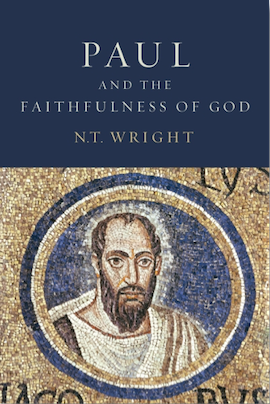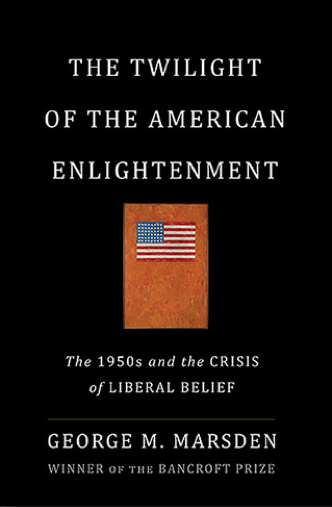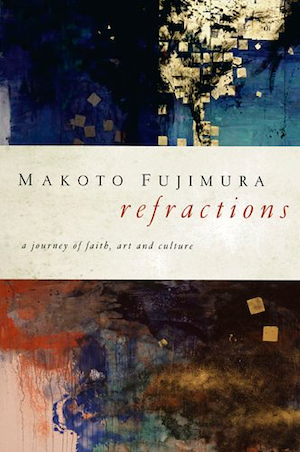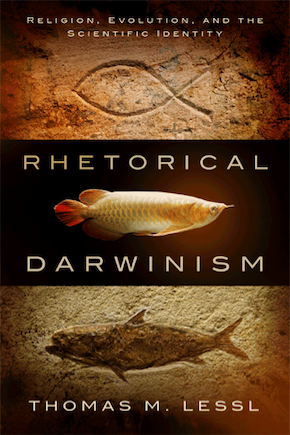PREVIEW
Guests heard on Volume 122

N. T. Wright, author of Paul and the Faithfulness of God, on the significance of narrative awareness as a gesture towards participating in God’s on-going narrative and away from cultural captivity
read more
George M. Marsden, author of The Twilight of the American Enlightenment: The 1950s and the Crisis of Liberal Belief, on American public intellectuals of the 1950s and their anxieties concerning national purpose
read more
Makoto Fujimura, author of Refractions: A Journey of Faith, Art, and Culture, on modernist art, Jacques Maritain, and the Eastern pictorial tradition
read more
David Bentley Hart, author of The Experience of God: Being, Consciousness, Bliss, on why historic theism (and all of its metaphysical claims) explains reality better than materialism does
read more
Thomas Lessl, author of Rhetorical Darwinism: Religion, Evolution, and the Scientific Identity, on the institutional “Copernican revolution” of the university and its attending warfare mythology as enduring perpetuators of the war between science and religion
read moreRelated reading and listening
- Natural law as “performance” —
FROM VOL. 124 R. J. Snell discusses how novel ideas about natural law focus less on moral propositions and concepts and more on the thrust for meaning and value. (27 minutes) - From culture war to culture care — In this 2016 lecture, artist Makoto Fujimura asks what would it look like for Christians to be stewards of beauty and human flourishing in all areas of life and culture. (48 minutes)
- Harbinger of disorder — Mark Mitchell on Michael Polanyi’s recognition of the dangerous dead-end of materialistic reductionism
- Insights from St. Thomas’s biblical exegesis — Jason Paone explains how St. Thomas’s commentaries reveal the saint’s personality, his rhetorical flair, and the Christocentric vision that underlie all his work. (24 minutes)
- Economics and personhood —
FROM VOL. 147 Mary Hirschfeld argues that modern economics makes some fundamental assumptions about personhood, material goods, and God that prevent the development of a truly human understanding of economic life. (20 minutes) - How advertising detaches us from the world —
FROM VOL. 13 Historian and cultural critic Jackson Lears discusses the power of advertising to reinforce and shape cultural attitudes about material goods. (9 minutes) - The theological significance of current events —
FROM VOL. 65 George Marsden discusses how Jonathan Edwards (1703–1758) understood world history and the American experience. (14 minutes) - Critiquing “empire criticism” — Allan Bevere and Peter Leithart evaluate “empire criticism,” a way of reading the New Testament with an anti-imperial focus. (36 minutes)
- Science’s need for philosophy and revelation — D. Stephen Long explores a consistent theme in the work of theologian Hans Urs von Balthasar: the relationship between Christianity, modernity, and secularity. (46 minutes)
- Theological realism — Kevin J. Vanhoozer discusses theologian T. F. Torrance’s understanding of the positive relation between science and theology. (52 minutes)
- Christopher Hitchens vs. G. K. Chesterton — Ralph Wood compares Christopher Hitchens‘s view of the cosmos with that of G. K. Chesterton, arguing that Chesterton succeeded where Hitchens failed. (44 minutes)
- The artist’s commitment to truth — Fr. Damian Ference, author of Understanding the Hillbilly Thomist, explores the depths to which Flannery O’Connor was steeped in Thomistic philosophy. (18 minutes)
- Flannery O’Connor and Thomistic philosophy — Fr. Damian Ference explores the depths to which Flannery O’Connor was steeped in Thomistic philosophy, as evidenced by her reading habits, letters, prayer journal, and, of course, essays and fiction. (48 minutes)
- An unwitting agent for the secularization of America — Mark Noll, Nathan Hatch, and George Marsden explain how a prominent Christian Founding Father added momentum to the secularization of America
- Faith and unbelief —
FROM VOL. 98 This Archive Feature revisits two conversations, one with Roger Lundin and one with David Bentley Hart, on what makes Christian belief so implausible to non-believers. (39 minutes) - Fixed certainties, fixed mysteries —
FROM VOL. 42 Science journalist John Horgan, author of The Undiscovered Mind: How the Human Brain Defies Replication, Medication, and Explanation, discusses the limits of neuroscience. (13 minutes) - Creation as beauty and gift —
FROM VOL. 67 David Bentley Hart describes how the Christian understanding of Creation as beauty and gift, as the outward expression of the delight the Trinity has in itself, reveals a vision of reality different from the pagan or fatalist vision of reality. (12 minutes) - Mechanism and the abolition of meaning — On the occasion of philosopher Daniel Dennett’s death this week, Ken Myers presents an archive interview with David Bentley Hart in which he explains how pure naturalism leads to the un-doing of rationality. (37 minutes)
- Materialism and the problem of mind — David Bentley Hart on the evasiveness implicit on all efforts to explain away human consciousness
- Dreary atheist fundamentalism — David Bentley Hart defends the naturalness of religious belief against the assertions of the Naturalists
- The infinity of beauty in Bach — David Bentley Hart on why Johann Sebastian Bach is the greatest of Christian theologians
- A theology of active beauty — In a 2010 lecture, George Marsden examines a few ways in which the distorting effects of Enlightenment rationalism were resisted in the work of Jonathan Edwards. (64 minutes)
- Rejecting “two-tiered” Thomism —
FROM VOL. 155 David Bentley Hart on how “two-tier Thomism” deviates from historic Christian understanding of the relationship between God and Creation. (42 minutes) - An outrageous idea? — In the late 1990s, George M. Marsden and James Tunstead Burtchaell both wrote books examining the claim that it was far-fetched even to imagine that scholarly work could be an expression of Christian claims about reality. (25 minutes)
- Freedom from the nature of things? — Leon Kass on the pressure exerted by the authority of science to embrace reductionistic materialism
- Resituating discussion of “science” and “religion” — Peter Harrison argues that modern Western culture’s partitioning of ‘science’ and ‘religion’ into distinct spheres is a novel categorical conception in history. (58 minutes)
- Mars Hill Audio Journal, Volume 156 — FEATURED GUESTS: Kimbell Kornu, Paul Tyson, Mark Noll, David Ney, William C. Hackett, and Marian Schwartz
- What makes our desires and action intelligible — David Bentley Hart on why we must believe that human beings are by nature inclined to the super-natural
- Recovering a sacramental imagination — Hans Boersma argues that we need to recover the pre-modern view that Creation not only points to God, but that it participates in the very being of God — that in God we live and move and have our being. (29 minutes)
- Mars Hill Audio Journal, Volume 155 — FEATURED GUESTS: Donald Kraybill, Thaddeus Kozinski, David Bentley Hart, Nigel Biggar, Ravi Scott Jain, and Jason Baxter
- Art and the truth of things — Joseph Nicolello explains the origins and themes of his imaginary dialogue between Jacques Maritain and Flannery O’Connor. (28 minutes)
- Beyond proof-texts — Mark Noll argues that the distinctly American practice of interpreting the Bible through proof-texting hampered the abolitionist movement’s effectiveness. (41 minutes)
- Beauty and a hermeneutics of creation — David Bentley Hart on the goodness of beauty
- The novelty of “science” and “religion” — Peter Harrison on the contingency of the boundaries that divide our lives
- Shrinking sources of causality — David Bentley Hart on the loss of a recognition of inherent meaning in the natural world
- Spirits in Bondage: Lewis’s early poetry — Karen Swallow Prior and Don W. King discuss C. S. Lewis’s early poetry and the evidence therein of a “frustrated dualism.” (23 minutes)
- Freedom, ancient and modern — In a brief excerpt from David Bentley Hart’s book Atheist Delusions, and a longer excerpt from an Areopagus Lecture by D. C. Schindler, the modern view of freedom is contrasted with the understanding of freedom present in ancient Hebrew, Greek, and Roman thought. (27 minutes)
- Roger Scruton, R.I.P. —
FROM VOL. 126 Sir Roger Scruton died on January 12, 2020. In this interview from 2015, Scruton discusses the ways in which the sacred or religious sensibility is prefigured in aesthetic experiences and in our relationships to the world. (20 minutes) - Fischer, Hart, and Highfield on freedom — Three past guests on the Journal explore the meaning of freedom and some common modern misunderstandings of the concept — errors with real consequences. (22 minutes)
- Mars Hill Audio Journal, Volume 138 — FEATURED GUESTS: John Milbank, Adrian Pabst, Glenn W. Olsen, Rupert Shortt, Oliver O’Donovan, David Bentley Hart
- David Bentley Hart: “A Perfect Game: The Metaphysical Meaning of Baseball” — Theologian David Bentley Hart muses on what is arguably America’s greatest contribution to civilization: baseball. Baseball, as Hart would have it, is the Platonic ideal of sports. (27 minutes)
- Mars Hill Audio Journal, Volume 133 — FEATURED GUESTS: Darío Fernández-Morera, Francis Oakley, Oliver O’Donovan, Thomas Storck, John Safranek, Brian Brock, and George Marsden
- Sinning against the common good — Jacques Maritain on how human societies must account for the full nature of human personhood
- The heaven of the materialists — George Parkin Grant on how sex drives out love
- From darkness [sic] into light [sic] — David Bentley Hart on the ignorant myth that banishes the transcendent from modern public spaces
- Not “mere” matter — David Bentley Hart on the spirituality of the material world
- Mars Hill Audio Journal, Volume 126 — FEATURED GUESTS: James W. Skillen, Christian Smith, B. W. Powe, David Downing, Roger Scruton, and Jonathan Arnold
- Principles have to be discovered, not chosen — Alasdair MacIntyre on the problem of natural law and contemporary culture
- Mars Hill Audio Journal, Volume 124 — FEATURED GUESTS: John Fea, Robert F. Rea, John C. Pinheiro, R. J. Snell, Duncan G. Stroik, Kate Tamarkin, and Fiona Hughes
- Fujimura, Hibbs, & Siedell: Abstraction, immanence, & the cultural landscape — Artist, philosopher, and art historian discuss the tension between self-expression, transcendence, and the material world.